By Danicius Kaihenneh Sengbeh
African nations, including Liberia, are grappling with significant debt burdens, hindering developmental progress across the continent, as highlighted at a workshop of nearly 50 journalists and media professionals convened in Abidjan, Ivory Coast.
The journalists, primarily focused on debt, finance, and revenue reporting, have gathered under the auspices of AFRODAD – the African Forum and Network on Debt and Development – for its 4th media initiative, AFROMEDI IV, held from March 19-21. The initiative aims to enhance journalists’ expertise, capabilities, and perspectives in reporting on Africa’s escalating debt levels and their impacts on the continent and its people.
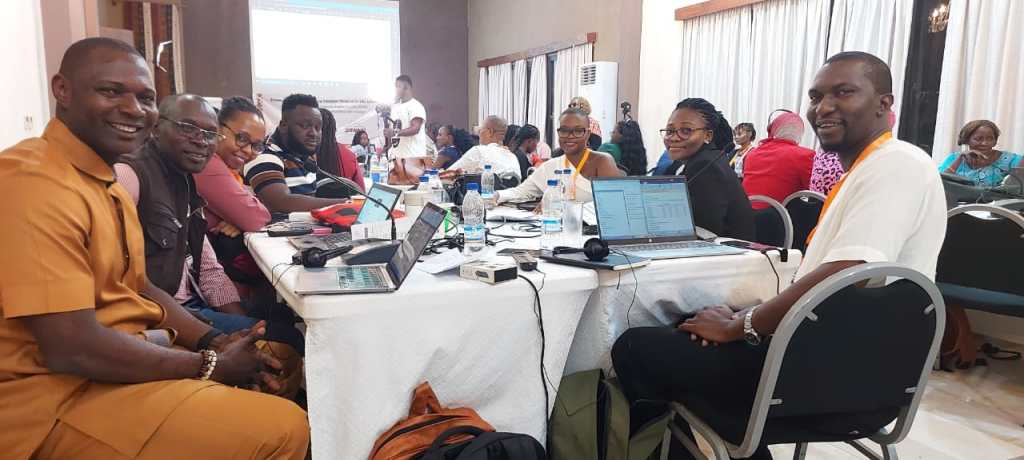
“In the early 2000s, Africa’s debt totaled just $238 billion, with less than a fifth owed to private creditors. By 2024, Africa’s total debt is projected to reach $1.13 trillion, representing a 374.8% increase since 2000,” stated Mr. Shem Joshua Otieno, AFRODA’s Head of Advocacy for Sovereign Debt Management, addressing the gathering.
Otieno further disclosed alarming debt-to-GDP ratios from 2019 to 2023 for several countries across the continent. For instance, Egypt averaged 86%, Sudan soared to 198%, Tunisia reached 83%, and Morocco stood at 70%. Additionally, the DRC, Zambia, and Mozambique surpassed the 100% mark.
These elevated debt-to-GDP ratios signal substantial debt burdens relative to economic output, posing significant risks to financial stability and debt repayment capabilities. Consequently, many African nations, including Liberia, with a debt-to-GDP ratio of 53.4% according to the World Bank, struggle to allocate funds to crucial sectors like health, education, and infrastructure.
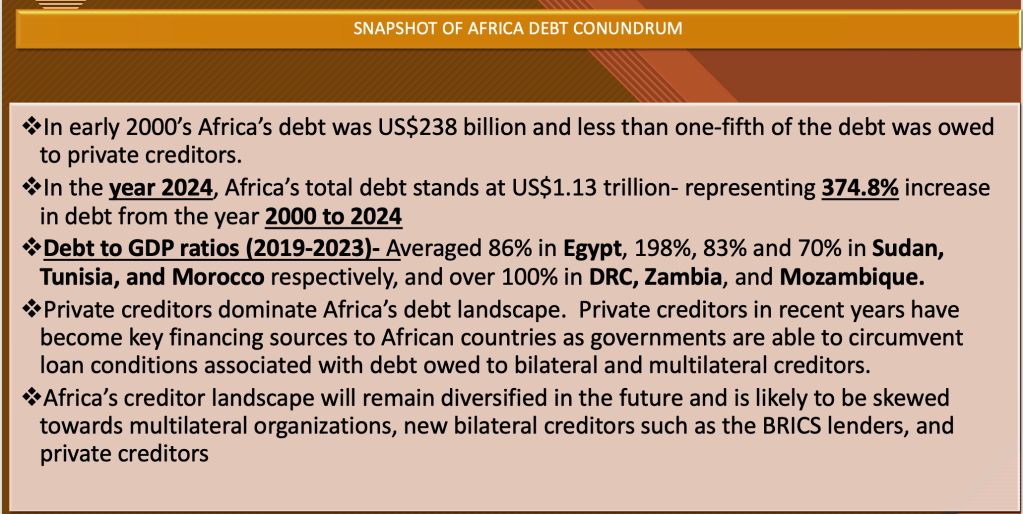
Earlier this year, Liberia’s newly inaugurated President, Joseph Nyumah Boakai, expressed concern over the country’s staggering debt burden, which has escalated significantly over the past six years. “The stock of public debt as of December 2023 stood at US$2.21 billion, marking an 8.67 percent increase compared to the end of December 2022,” he revealed, emphasizing a dramatic rise.
Boakai further revealed Liberia’s current sanction status due to non-payment of dues to the African Union and the African Development Bank, along with a default in payment to the European Investment Bank, hindering crucial project disbursements.
This predicament mirrors challenges faced by many African nations, where access to funds for developmental projects is blocked, and domestic resources are diverted to service debts not utilized for their intended purposes.
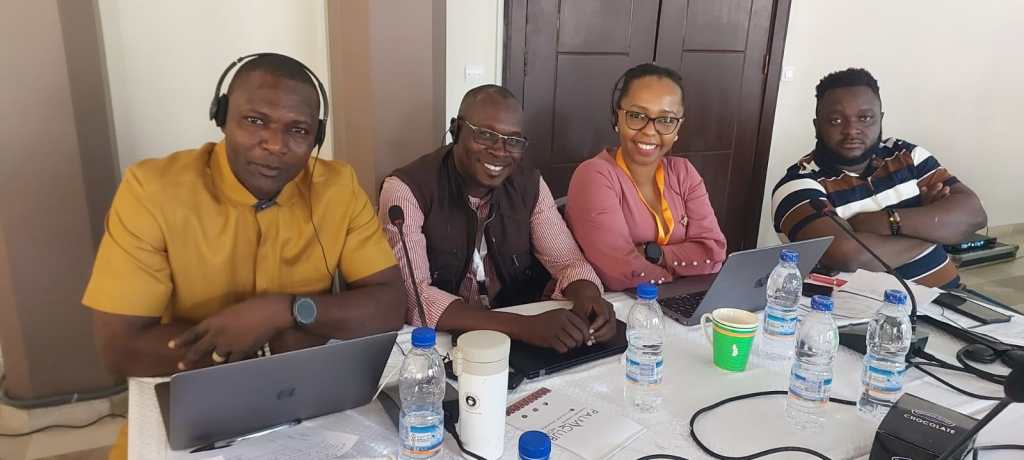
AFRODAD, a staunch advocate for debt relief, responsible lending and borrowing, as well as transparency and accountability in financial management, underscores the vital role of the media amidst the continent’s mounting debt crisis. Fidelite Nshimiyimana, Head of Campaigns and Communication at AFRODAD, stresses the media’s traditional watchdog function in holding leaders accountable and scrutinizing resource acquisition and management to ensure the best interests of the people are prioritized.
Nshimiyimana emphasizes the media’s role in popularizing objectives, reflecting them, and giving them concrete form, highlighting their significant contribution. She further points out that the sluggish progress of some African countries in their development efforts can be attributed to the burden of poorly managed external debts weighing down their endeavors.
Conversations at AFROMEDI IV highlight a troubling trend: many African nations lack transparency in their loan and borrowing agreements, often defaulting on terms and conditions attached to these loans. Some resort to questionable, clandestine, and backdoor arrangements, exposing their countries and populations to heightened debt payment risks lasting for generations.
Over three days, journalists and media practitioners from across the continent are immersing themselves in a comprehensive understanding of Africa’s debt landscape. They’re delving into debt origins, examining challenges of poor management at the national level, and acquiring skills to craft and report stories on debt and borrowing that can drive policy change and foster accountability among public officials responsible for financial decision-making.
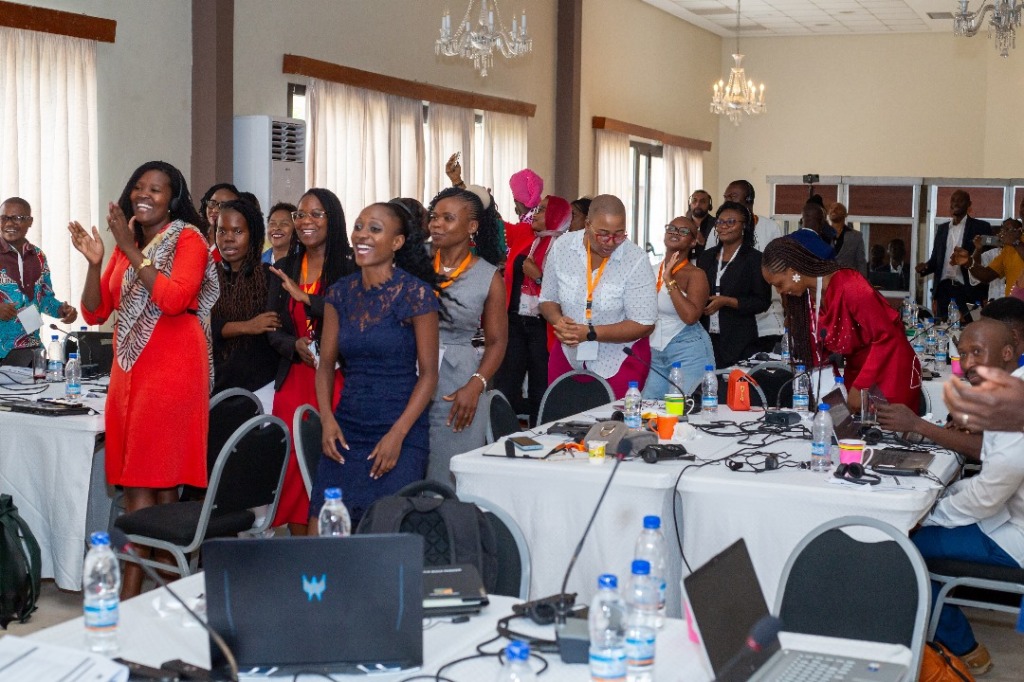
AFRODAD’s overarching mission is to contribute to Africa’s inclusive economic growth and sustainable development through advocacy for policy changes in debt management and development financing, anchored in human rights-based approaches. Meanwhile, AFROMEDI IV aims to empower participants from the media by familiarizing them with AFRODAD’s mission, outlining AFROMEDI’s objectives, introducing them to the Media Debt Network Africa (M-DNA), and facilitating networking opportunities among attendees.

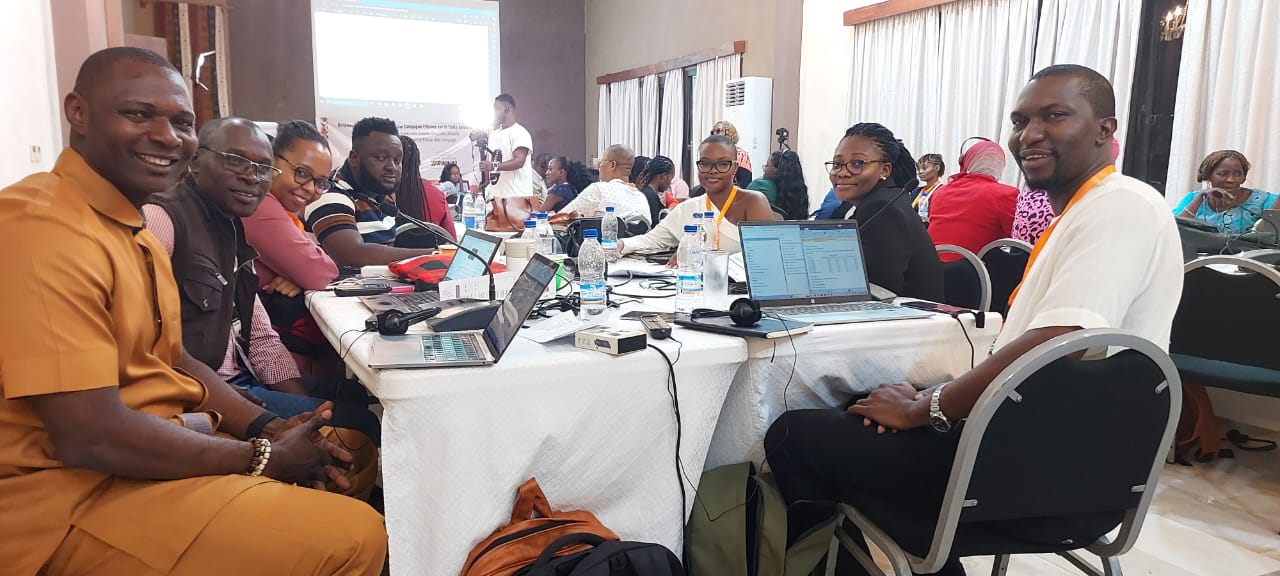
Leave a comment